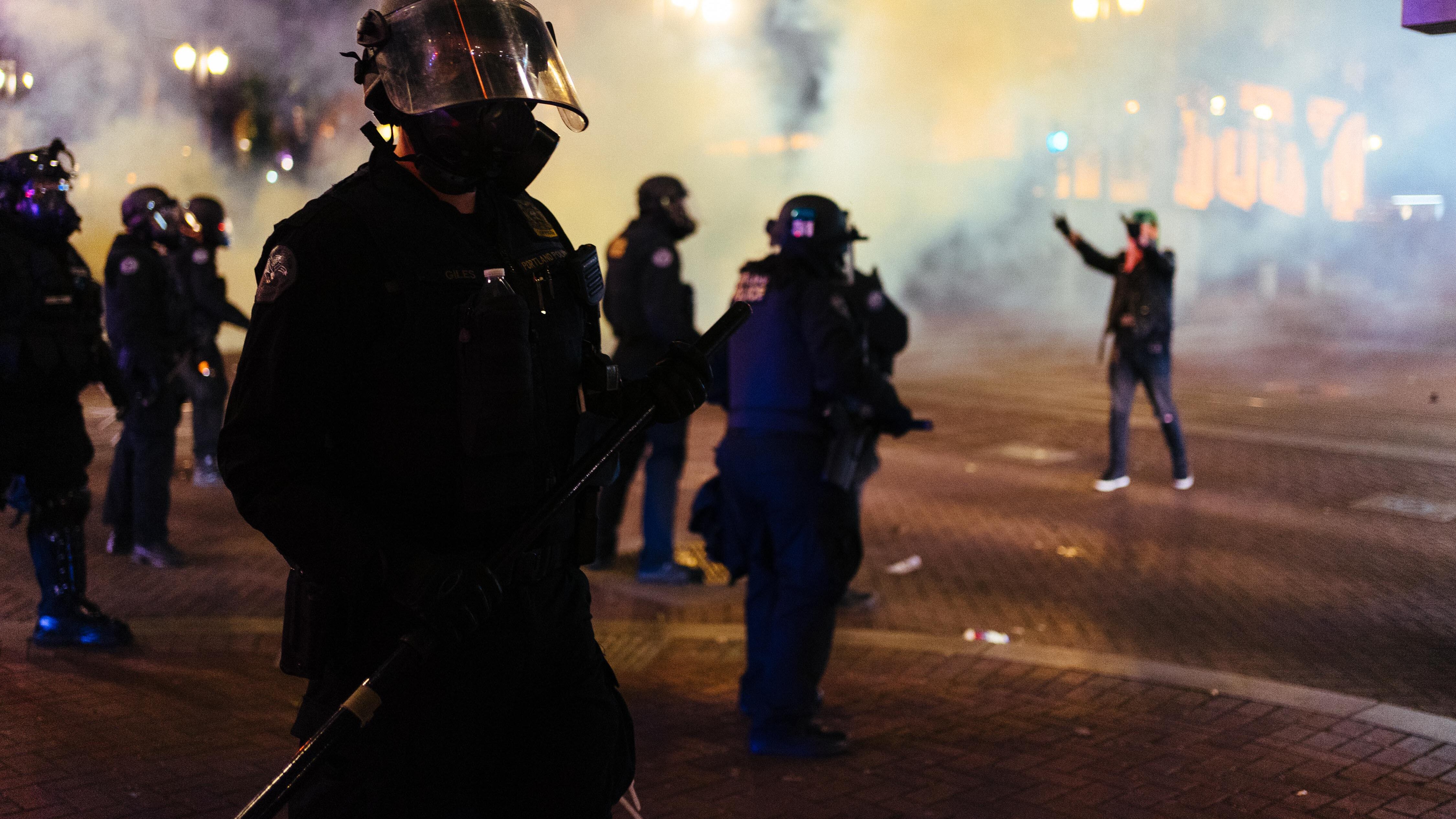Shortly after 5 pm, Portlanders received an emergency alert on their cellphones telling them that an 8 pm curfew was in place across the city.
Civil liberties watchdogs got the message, too—and didn't like it.
Three social justice groups, including the American Civil Liberties Union of Oregon, criticized the curfew set by Mayor Ted Wheeler, in part because it appears to allow almost all activities to resume besides protests.
On Saturday evening, ACLU of Oregon tweeted at Wheeler and Portland Police Chief Jami Resch that due to its subjective rules, the curfew was an "extraordinary measure" that could result in "selective enforcement" in whom the police discipline for violating it.
Mayor Wheeler & Chief Resch:
— ACLU of Oregon (@ACLU_OR) May 31, 2020
A curfew on the entire City of Portland is an extraordinary measure that will likely lead to selective enforcement. It is not necessary to allow police to intervene in acts of actual lawbreaking. We urge you to look for a less restrictive approach.
The curfew does not apply to Portlanders traveling to and from work, or to and from the grocery store, The Oregonian first reported today. Businesses are still allowed to remain open as well, and all forms of transportation—including buses and ridesharing apps like Uber and Lyft—are still allowed. The curfew will not apply to people experiencing homelessness, or those who are fleeing violence or seeking medical care.
That leaves very few activities restricted under the curfew. In a statement released Saturday, the mayor made it explicit that the curfew is designed to directly address demonstrations, which have the potential to escalate into riots as they did Friday night.
"The curfew is a tool to address the kind of behavior that caused fires, property damage, and personal injury in the City on Friday night, and not to intrude into people's lives," the mayor's office wrote on its website Saturday. "The City asks all Portlanders to voluntarily adhere to the curfew to help protect the safety of our community. "
Wheeler's office told The Oregonian that "the city is not interested in citing people who are going about their business, causing no harm."
When asked which activities would be subject to the curfew, a spokesman for the mayor said that it was "another tool to address illegal activity."
"Police will use an education first approach, informing anyone encountered about the curfew and asking them to comply," Wheeler spokesman Tim Becker said. "The next step is to remind them that they are legally required to comply with the order, and of the possible consequences if they don't. Those who don't comply may be arrested."
The Oregon chapter of the Center for American Islamic Relations and the Oregon Justice Resource Center flatly condemned the curfew. "The implementation of a curfew in Portland as a response to protests is an attack on our rights," the two groups wrote in a joint statement.
Cities across the United States—Los Angeles, Miami, Atlanta and Philadelphia, among others—have set curfews tonight as protests have grown increasingly destructive. Police have cracked down violently in several cities.
Portland City Hall says on its website that violating the curfew is a criminal offense punishable by a fine of up to $500.
One hour before the curfew started, police deployed flash-bangs on a crowd of protesters outside the Multnomah County Justice Center.
